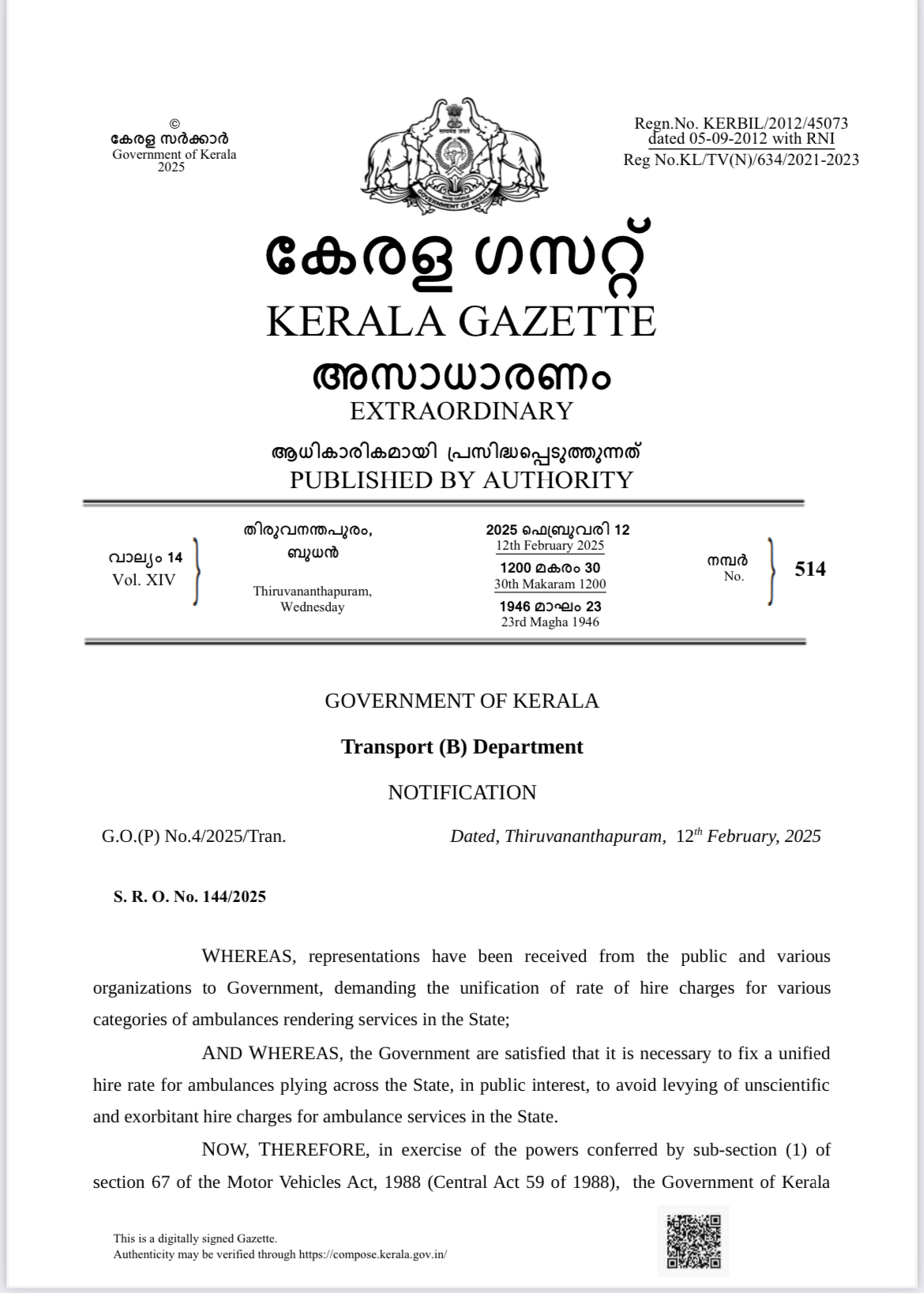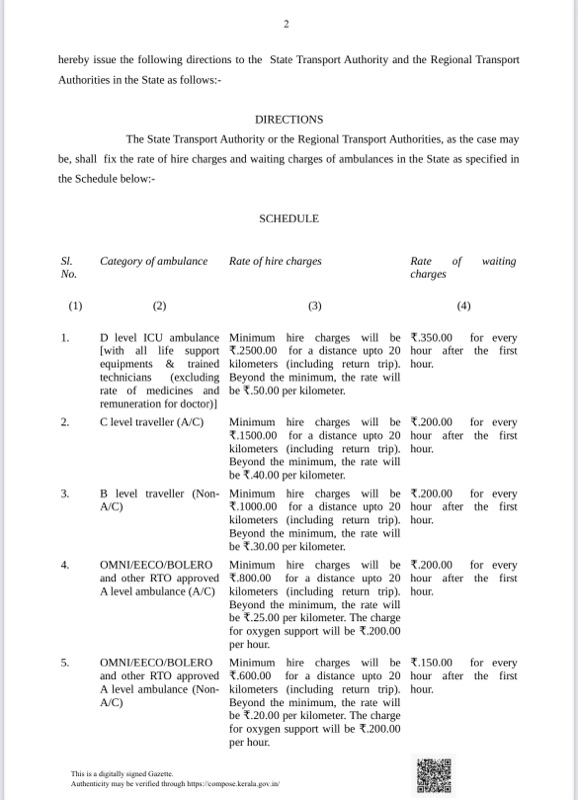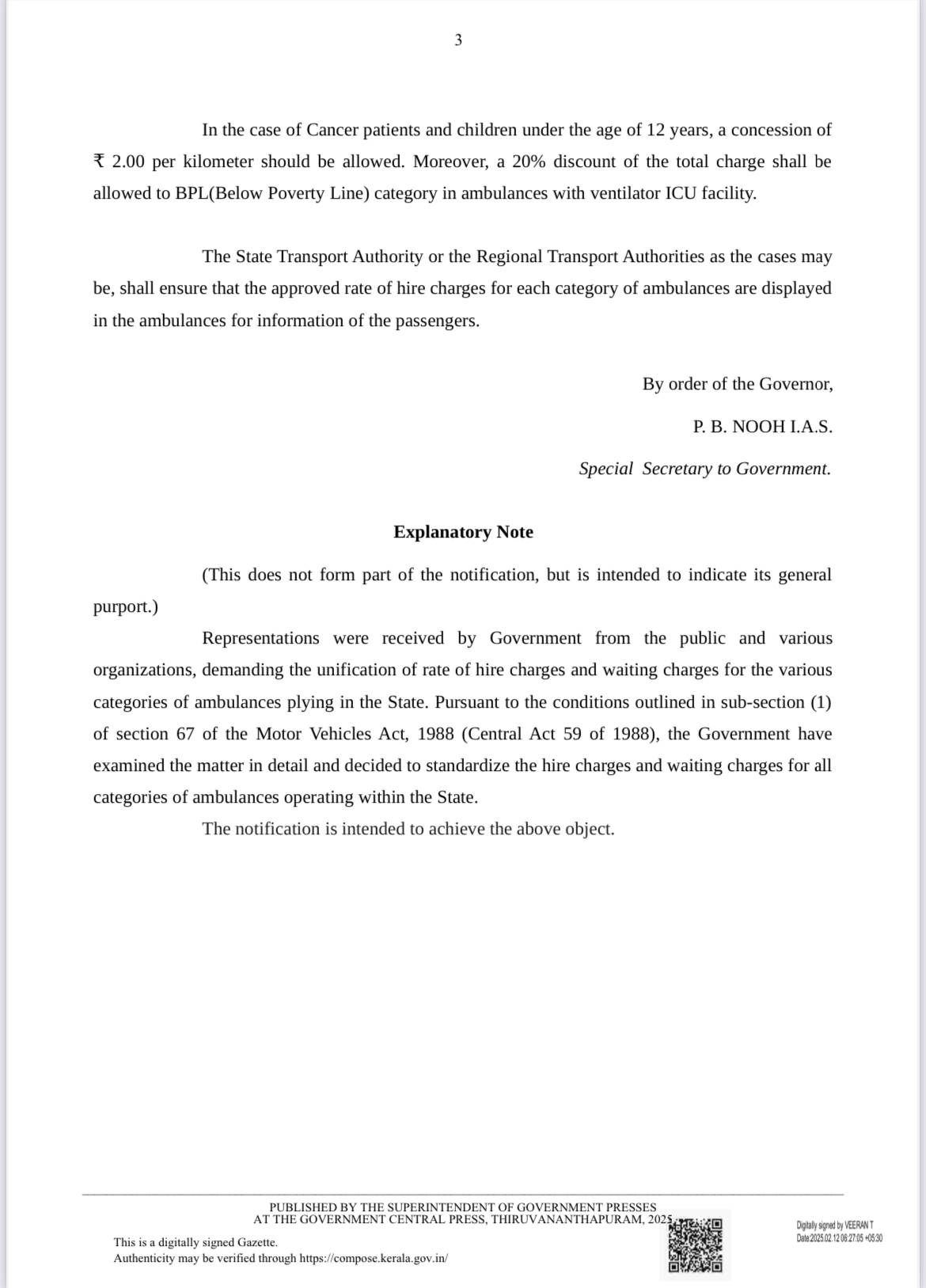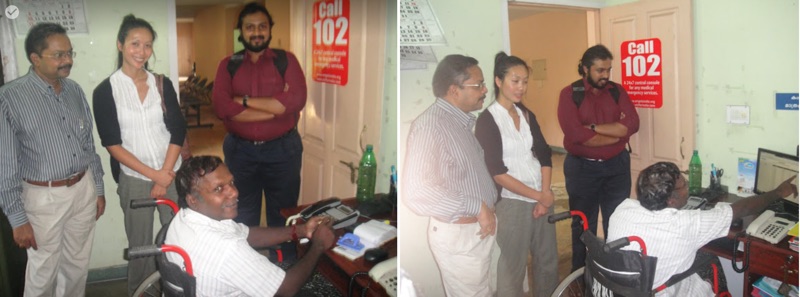A Milestone in Emergency Healthcare: Kerala Government Fixes Ambulance Fare Prices



Today marks a significant moment in Kerala’s emergency healthcare landscape as the Government of Kerala has officially released an order regulating ambulance fare prices across the state. This long-overdue decision is a crucial step toward ending the exploitation of patients and ensuring fair, standardized pricing in ambulance operations.
A Struggle That Began Years Ago
The need for fare regulation in ambulance operations is not new. Angels International Foundation, an award-winning NGO dedicated to community-based ambulance networks since 2011, raised this issue as early as 2014. The foundation actively advocated for fare fixation and formally represented proposals before Justice Ramachandran Nair’s committee and the state government.
Despite the urgency of the matter, successive governments failed to act, caught in a web of bureaucratic delays and hesitation to confront the powerful ambulance operators. Over the years, these operators have grown into a mafia-like network in Kerala, with decorators and syndicates controlling ambulance services. The field has been riddled with malpractices, unethical pricing, and financial exploitation of patients during medical emergencies.
A Bold and Much-Needed Decision
In this context, the current Kerala government’s bold move to regulate ambulance fares deserves special recognition. This Government Order (G.O.) is a milestone in establishing ethical and standardized operating procedures for emergency vehicles. By implementing this policy, the government is not only protecting patients from financial exploitation but also bringing accountability and transparency to ambulance services in the state.
This decision sets a precedent for other states to follow and reflects a much-needed shift toward patient-centric emergency care. While challenges in implementation remain, this is a major victory for healthcare accessibility and fairness.
Kudos to the Kerala Government for finally taking this crucial step. Now, the focus should be on strict enforcement and continuous monitoring to ensure that the intended impact reaches those who need it the most - the patients.



No comments:
Post a Comment